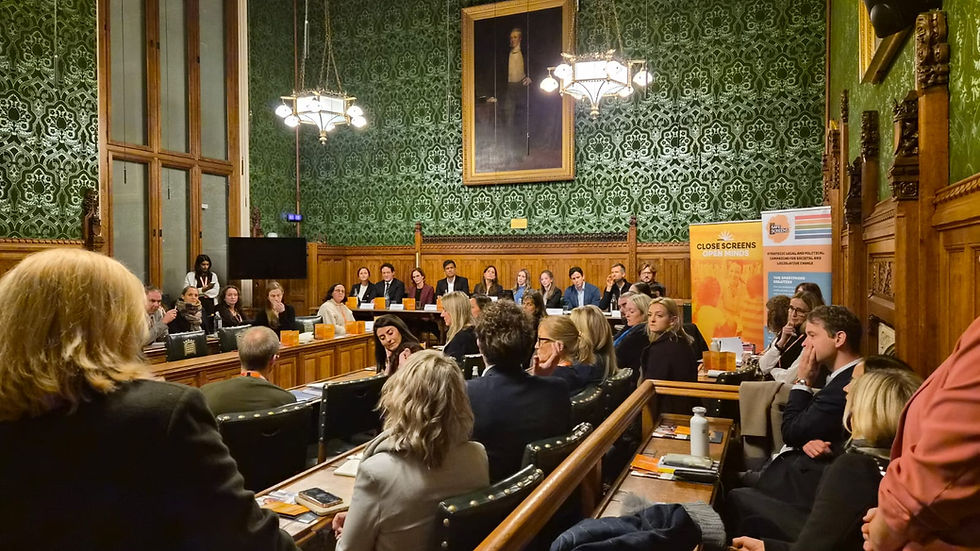WSIS Forum 2023 - Session Outcome
- velislava777
- Mar 25, 2023
- 2 min read
Governance and Regulation of Education Technologies: How to ensure EdTech serve in children's best interests?

Rapid digitisation defines educational priorities today. And while digital technologies give hope for convivial societies and futures, today’s reality and practices highlight challenges and risks that must be addressed with urgency.
In the high-level session at this year's WSIS Forum held at the International Telecommunication Union (ITU) in Geneva, EDDS voiced education stakeholders' concerns with regards to the rapid digital adoption in education, private companies' growing influence in educational matters, the normalisation of digital surveillance, and the risks of diminishing children's basic rights and freedoms as a result of datafication and algorithmic profiling, monitoring, and control in educational environments.
Addressing international governmental delegates, industry representatives, and the United Nations agencies representatives, EDDS called for the urgent next steps that must be considered by governments globally as they rush to digitise their public educational systems.
Greater scrutiny and systematic oversight - focus on the (Ed)Tech industry
So far, we are seeing the private sector becoming the central infrastructures and means to education. This central position requires thorough oversight, clear rules, and standards to ensure quality education and access to quality content that respects local cultures, values, the individual and the collective.
Digital technologies' data extraction and algorithmic capacities being integrated in educational infrastructures are a cause for concern and governments must turn to these by developing the right tools and regulatory mechanisms for oversight.
We must demand better governance whereby clear rules and standards are enforced and continuous evidence is generated around what works, for whom, how, when, and why.
EDDS presented its treatise for governance and regulatory mechanism of oversight of the EdTech sector, which emands a number of criteria:

Evidence building whereby the education community - teachers and students - actively participate in the decision-making processes around what edtech products work and are needed;
A dedicated executive authoritative body which will aim to safeguard the autonomy and sovereignty of public education and children's best interests;
Achieve consensus across key stakeholders around clear standards, protocols, and rules that the edtech and Big Tech sector must adhere to if they want to offer digital products in education;
Commitment by the EdTech sector to ethical practices, data responsibility, and that they prioritise children's best interests.
This is a concrete proposal and EDDS is in the process of working with several governments in how such systems of oversight can be implemented and clear rules for the sector - enforced.
As a way forward, the WSIS Forum 2024 should welcome first outputs from these initatives, but also consider debating alternative forms of digitisation of education whereby education technologies or digital infrastructures are developed or treated as public utilities, whereby private commercial power is avoided; or licensing regimes whereby high-quality products are allowed to mediate children’s education.



Comments